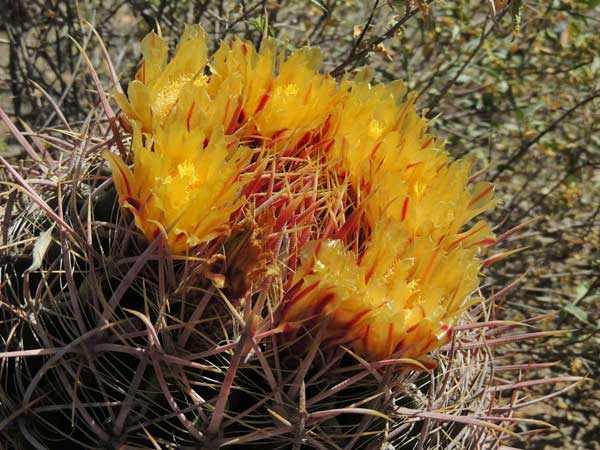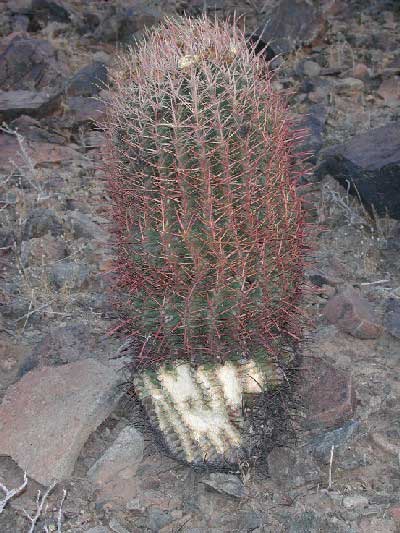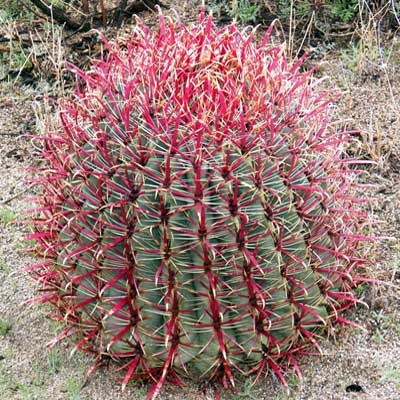Compass Barrel
California Barrel Cactus
Ferocactus cylindraceus
(F. acanthoides)

Phoenix Mountains Preserve, Maricopa Co., Arizona, USA. 26 March 2016.

Photographed near Shaw Butte, Phoenix, Maricopa Co., Arizona. June 18, 2002. The tough cortex and sharp spines have been breached by the feeding activity of Audubon's Cottontail and/or White-throated Woodrat.
SPINES: Also known as yellow- or even red-spined barrel cactus because the spine
clusters contain yellow, as well as reddish, pink and gray spines. There are
four central stiff, spines, another series of 4 to 10 stiff spines, then a
series of fine wispy spines. The central spine may be strongly curved, but is
not hooked. The clusters of spines may be so long and dense that they nearly
obscure the stem.
FLOWERS: Yellow or yellowish flowers open mostly in May or June.
STEM: Columnar, up to 2 m or more tall.
FRUIT: Flowers and yellow fruits are arranged at the top, the growing tip, of
the cactus.
RANGE: Generally distributed throughout the Arizona Sonoran Desert but
more common near Phoenix than near Tucson.
Prior to the opening of the flower buds many ants, especially Forelius and Myrmecocystus, are drawn to feed on a sticky exudate from the bud surfaces. Both of these ant species are able to spray noxious chemicals that would deter herbivorous animals from nipping at the buds.
Despite Barrel Cactus' dense armor of spines, Desert Bighorn Sheep are able to penetrate the defenses and feed on the flesh. (Harquahalla Mountains, Warrick et al. (1989) report.)
Cactaceae -- Cactus Family
Sponsored Links:

This example in the Wickenburg Moutains of Yavapai Co., Arizona, has exceptionally colorful spines. One could imagine the spines to be bloody from a hiker that got too close!